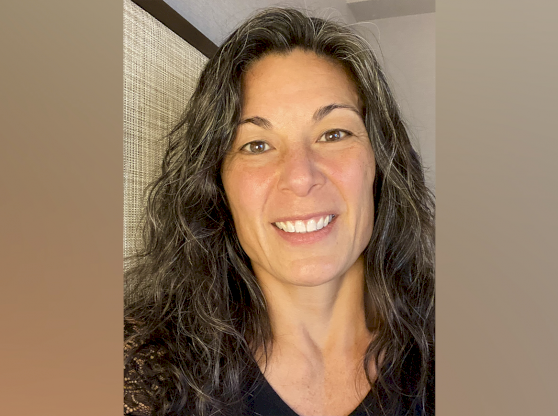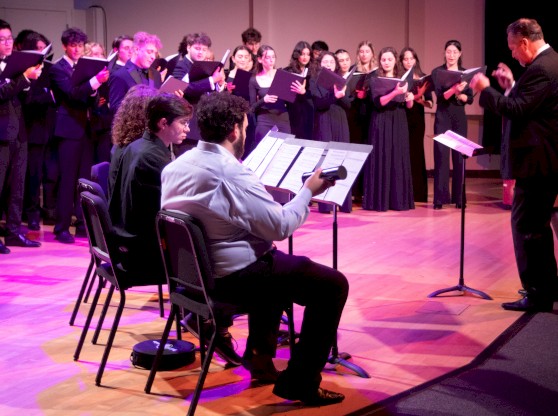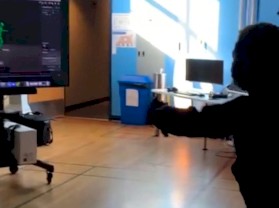During the COVID-19 pandemic, education has been severely impacted worldwide. As classes transitioned online at the University of Florida, K-12 students across the nation also had their classes interrupted and either moved online or cancelled entirely for the rest of the school year. Ongoing class sessions are especially important for K-12 students, many of whom benefit from experiential learning that is not typically offered in ad hoc online settings.
In partnership with the UF Literacy Institute, Digital Worlds Institute Associate Professor Angelos Barmpoutis is addressing this world-wide need for online educational engagement through an innovative virtual platform solution.
The Virtual Word Work Mat is an interactive app designed for literacy instruction. Based on the original physical classroom version of the Word Work Mat created by UF doctoral student Valentina Contesse, this open-source and open-access tool allows teachers and parents alike to continue developing students’ proficiency with word reading.
“I never imagined when I was making Word Work Mats for my first graders, using file folders and Velcro, that it could be transformed into a digital tool that teachers all over the world would use in their classrooms,” Contesse said.
Barmpoutis started reconstructing this in-person activity into an online app about a year ago after a colleague of his at P.K. Yonge Developmental Research School asked if there was any way to make the word mat digital.
“Last year, it was just an experiment for us,” he said. “We didn’t broadcast it widely.”
As classrooms closed and education shifted online, Barmpoutis was approached by Holly Lane, director of the UF Literacy Institute , who asked if he could make some improvements and add additional features to the app ahead of its relaunch. After some design upgrades and an additional beginner version to complement the existing intermediate version, the app was relaunched online through the Literacy Institute’s Facebook page.
In two days, the new and improved Virtual Word Work Mat had reached more than 70,000 people and was shared over 300 times. The Literacy Institute’s Facebook following also gained more than 1000 subscribers in just 48 hours.
“We never expected it to be received so well,” Barmpoutis said.
According to Barmpoutis, creating and offering access to the Virtual Word Work Mat during the pandemic lockdown empowered teachers and students to continue their literacy instruction as part of their online learning activities. Designed to work on tablets and other devices using either iOS or Android platforms, the Word Work Mat provides a simple user interface in which students can manipulate letter cards with intuitive touch gestures and compose words at home.
The success of the app has been largely attributed to the strong, cross-collaborative partnership between Digital Worlds and the Literacy Institute.
“Thanks to the commitment and technical expertise of Angelos Barmpoutis, we were able to take some of our interactive literacy instruction materials and bring them to life on a virtual platform,” the director Holly Lane said. “The response from teachers has been overwhelmingly positive. We have many thousands of teachers accessing the materials and sharing the links on social media.”
Experiential online learning offers benefits in accessibility across the traditional challenges of demographics, geography, and time zones, according to Digital Worlds Institute Director James Oliverio.
“This project is an example of the interdisciplinary strengths of the University of Florida,” Oliverio said, “Faculty stepping up in a time of need to provide tangible benefits from the ongoing research and development happening across our campus.”
To interact with the Virtual Word Work Mat, click here: Beginner Word Work Mat or Intermediate Word Work Mat.


